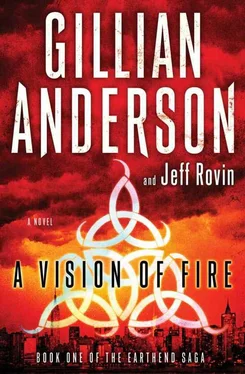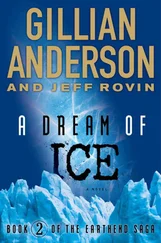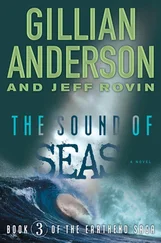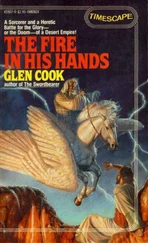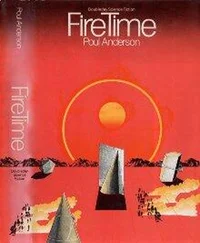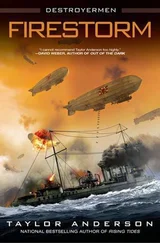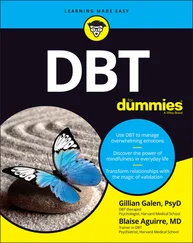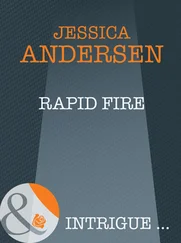She and Ben huddled over the glowing screen. The drawing seemed unrelated to either the Viking longship or the symbol of crescents. Its wobbly lines seemed to undulate from upper left to lower right with something like a purpose, yet the lines themselves were as organically shaped as frost or the edges of a stain. Directional… textural… they appeared not to be casual.
But appearances are not necessarily reality , she reminded herself. They could be nothing more than random scrawls on which she was attempting to force pattern recognition.
“Thoughts?” she asked.
“Either too many or not enough,” he said, tapping a few keys. “Two years ago, even a year ago, it would have been hell figuring out what this might be. Now that image-search capabilities have improved…”
He finished uploading the image and they watched an online search begin. The “best guess” image that first appeared was an example of an irregularly shaped freckle—an indication of carcinoma, which dampened their spirits. Ben slowly scrolled through the long list of possible matches: children’s drawings; several poor illustrations of shorelines, which gave them pause; and a number of microscopic images of skin cells. Then Caitlin stabbed her finger at the screen.
“Hold on. That. What is that ?”
Ben tapped on the image and it filled the screen. It was a map, yellowed and ancient. Ben placed it side by side with Maanik’s drawing and both of them felt the temperature of the room plummet as her image fit easily into the shape of Antarctica, matching the ancient map’s outline with remarkable precision.
“The Piri Reis map,” Ben read. “From the early sixteenth century.”
“I’ve heard of it,” Caitlin murmured. “It showed the contours of Antarctica before it was covered with ice. Which is impossible.”
“Right,” Ben countered, “which is why it says here that’s a still-disputed claim. The best explanations are that the map shows something else altogether, possibly a combination of two or more maps that were thought to be contiguous.”
Caitlin didn’t reply. Grabbing Maanik’s file folder, which had been at the top of her stack ever since she met the girl, she flipped through its pages. Past the drawing she had made of the Norse longship, through her notes on Haiti, down to the bottom, where she found the drawing Maanik had made with her right hand, her nondominant hand—the drawing Caitlin had thought resembled a steep cliff and water. She showed it to Ben.
“What’s that?” she asked.
“An iceberg,” Ben said instantly.
“Drawn by Maanik during one of her earliest episodes,” Caitlin said. She put the paper on the table and they stared at the images. Then Caitlin added the drawing of the longship. “The Vikings got as far as North America. Maybe they went even farther. To the south.”
“To Antarctica?”
“Why not? Maybe not Vikings exactly, but their ancestors. We’ve been on this planet, and probably seafaring, for quite a while.”
“Yes, but that’s still a whopping great distance, Cai. From anywhere to Antarctica.”
“Not necessarily,” she said.
“What do you mean?”
“Continental drift,” she said. “The landmasses were all closer, once.”
“During the Triassic, yeah, maybe you could’ve walked from Australia. But there were no people then. No mammals, in fact.”
“All right, what about—and we’re speaking just for the sake of argument here—what if it wasn’t Vikings coming south to find Antarctica? What if there were people sailing north from Antarctica?”
“Cai… ,” he cautioned.
“What if ancestors of the Vikings lived there and sailed primitive longships away from the ice?”
“That’s a very big ‘if.’”
“Why?” she asked. “Because we haven’t found traces of a civilization in the least explored continent on earth, where ice freezes and melts and shifts in a way that would stifle extended archeological research, hide any and all clues?”
“No, look at this.” He pointed at text on the Web page. “The argument that the Piri Reis map shows an ice-free Antarctica rests on an assumption that Antarctica was ice-free around 4000 BC. Most scientists are sure Antarctica was covered by at least three million years ago. Humans were barely out of the trees.”
Caitlin was silent.
Ben looked at her reflection in the tablet. He added quietly, “It also doesn’t explain what any of that would be doing inside Maanik’s head.”
“No,” Caitlin agreed. Her voice felt heavy, her words dropping like brass weights into the air. “But even you said that Maanik is seeing or channeling or experiencing something big.”
“Yes. It’s like a disaster movie of the mind,” he said. “The operative words being ‘of the mind,’ a kind of waking dream. I’d even possibly, maybe buy a shared dream.” He turned to look at her. “Why? Are you back on past lives again?”
“I don’t know that I was ever there,” she admitted. “I just don’t know what else to think.”
Ben shook his head. “Show me a Mongolian connection and I’ll try harder to buy into it. The language definitely shows traces of Mongolian ancestry. But even so, Antarctic Vikings sailing north to Central Asia? That’s a reach, Cai. About eight thousand miles of a reach.”
“Yeah,” she agreed. “Yeah. Fine, I’ve got nothing else.”
“It was a good try, though.”
“Sure, sure. A unified theory that explains everything… and nothing.”
“Let’s put it away for tonight,” Ben suggested.
Caitlin gathered up the drawings and put the file folder away, trying to stop her mind from chewing on the problem. When she turned back to Ben, his focus had changed. He was sitting there looking at her , not at her analytical avatar, and he was sitting very still. She reached out with her right hand and picked up his left hand. Instantly she felt a waterfall surge through her body, vaguely channeled through her right hand. It brought a feeling of such immense relief, she laughed. Ben smiled and inhaled deeply, as if he had just downed a liter of water and was catching his breath.
“Jacob said he wasn’t big enough to help hold it,” Caitlin said.
“Huh?”
“The ocean.”
“What made you think of that?”
“Nothing,” she lied.
Ben was silent, choosing his words carefully. Then he said, “I have a lot of empty space. To hold things.”
Caitlin stared at him, seeing all the countless moments he had been alone in his life. “You’ve got room for my slosh-over, you mean?”
He didn’t have to answer.
She shook her head. “That worries me. Relying on someone, emotionally.”
“Why? People help each other, Cai. It’s what we do.”
“Well, people do a lot of other things too, and some of them are pretty rotten.”
Ben chuckled. “And you think I’ve got a problem with commitment.”
“I never said that.”
“Not with words,” he said, smiling.
“Maybe we have complementary problems,” Caitlin said slowly as she stepped to him, gently pushing his shoulders back and draping a leg over his lap to straddle him. Her back was to the table edge, her body molded into his.
“Even a crazy fit is a fit,” Ben whispered.
She held her lips to his and they breathed together, deeply, as he laid his hands on her lower back and pulled her in tight. Ben was right: it was a crazy fit. But at the moment, it was a fit.
The nocturnal world outside the Global Explorers’ Club mansion was uncommonly still.
Earlier that day, pigeons had avoided the area just north of Washington Square Park. Dogs had not seemed eager to walk on lower Fifth Avenue; they hit the broad street and stopped, refusing to go farther. Cats that normally sat in the windows of buildings across the street avoided their perches altogether.
Читать дальше
